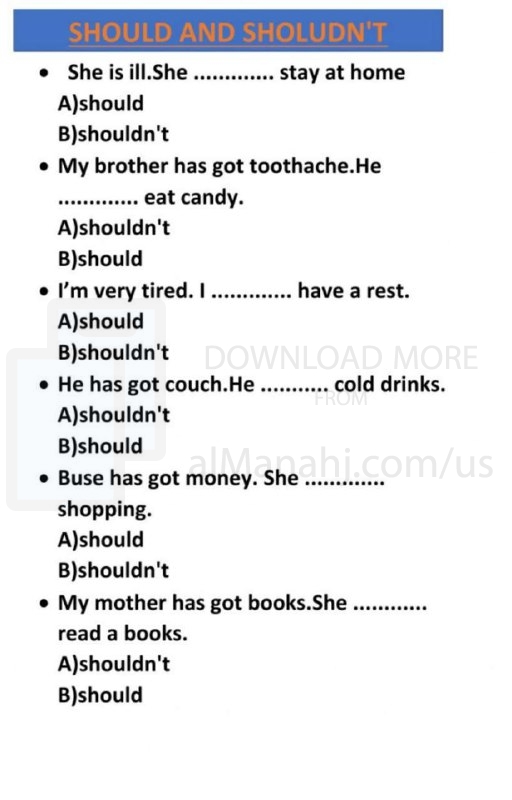| File info: "Should" and "shouldn't" are modal auxiliary verbs in English that express advice, recommendations, obligations, or expectations. They are used to convey the speaker's opinion or to indicate what is considered appropriate or desirable in a particular situation. Here's a description of "should" and "shouldn't":
1. Should:
- "Should" is used to give advice or make recommendations. It suggests the best course of action or the preferred option. For example:
- "You should study for the exam to do well."
- "She should see a doctor about her persistent cough."
- "Should" can also express an obligation or expectation:
- "We should be on time for the meeting."
- "Students should respect their teachers."
- It can indicate a likely outcome or a prediction:
- "If you study hard, you should pass the test."
1. Shouldn't:
- "Shouldn't" is used to give advice against a particular action or to express a recommendation to avoid something. It implies that an action is not desirable or advisable. For example:
- "You shouldn't eat too much junk food. It's unhealthy."
- "He shouldn't drive without a valid license."
- "Shouldn't" can also indicate a moral or ethical judgment:
- "People shouldn't discriminate based on race or gender."
- "We shouldn't waste natural resources."
"Should" and "shouldn't" are versatile verbs that can be used in various contexts to express opinions, recommendations, obligations, or expectations. They help convey guidance, offer suggestions, or express social norms. It is important to note that the use of "should" and "shouldn't" is subjective and depends on the speaker's perspective or the specific situation being discussed. |
